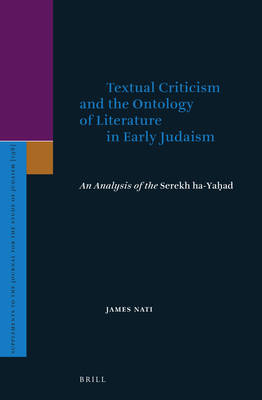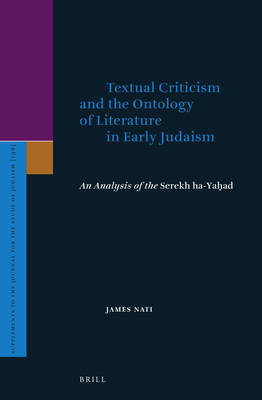
- Afhalen na 1 uur in een winkel met voorraad
- Gratis thuislevering in België vanaf € 30
- Ruim aanbod met 7 miljoen producten
- Afhalen na 1 uur in een winkel met voorraad
- Gratis thuislevering in België vanaf € 30
- Ruim aanbod met 7 miljoen producten
Zoeken
Omschrijving
How did early Jewish scribes understand their own textual traditions? Using the Serekh ha-Yaḥad from Qumran as a test case, this volume argues that even in Antiquity, texts were regarded as fluid, rather than as single unified compositions.
Specificaties
Betrokkenen
- Auteur(s):
- Uitgeverij:
Inhoud
- Aantal bladzijden:
- 374
- Taal:
- Engels
- Reeks:
- Reeksnummer:
- nr. 198
Eigenschappen
- Productcode (EAN):
- 9789004471948
- Verschijningsdatum:
- 4/11/2021
- Uitvoering:
- Hardcover
- Formaat:
- Genaaid
- Afmetingen:
- 155 mm x 234 mm
- Gewicht:
- 693 g

Alleen bij Standaard Boekhandel
+ 415 punten op je klantenkaart van Standaard Boekhandel
Beoordelingen
We publiceren alleen reviews die voldoen aan de voorwaarden voor reviews. Bekijk onze voorwaarden voor reviews.








